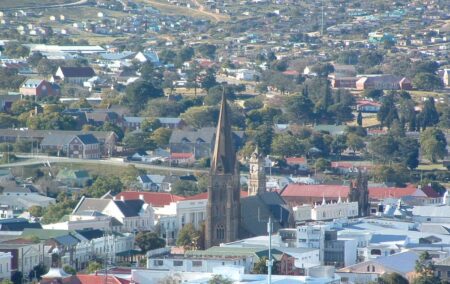Ron Weissenberg
Ultimately, it may be up to the Constitutional Court to uphold the heritage, history and rich tapestry of cultures that make up modern South Africa.
Historic Grahamstown, named after Colonel John Graham over 200 years ago, was recently renamed ‘Makhanda’, after an early 19th-century prophet. The announcement raised both emotions and questions. Was Colonel Graham an authoritarian, a brutal murderer, or a dedicated soldier following orders? Was Makhanda a cult leader, a gifted sage, or did he lead a thousand innocent people to their untimely deaths?
Historians may differ on the interpretation both of the oral tradition and of the written records, but there is a recurring theme – only one of these 19th-century individuals is being judged by 21st-century standards.
The Grahamstown name-change to Makhanda, gazetted in July 2018, is likely to be reversed. This is according to experts monitoring the legal battle between the Minister of Arts and Culture, Emmanuel Nkosinathi Mthethwa, and the Keep Grahamstown Grahamstown civil society group.
Opposition to the name change centred on the alleged violation of statutory procedures, and inadequate community engagement. Moreover, prior name-change processes resulted in the local community agreeing to keep the 19th-century Grahamstown name.
South Africa has many place names which have been considered offensive or inappropriate. Name-changes are as much a part of the spoils of conquest and regime ideology as they are reflective of an evolving society. Constitutional processes also provide for altering names in support of healing, reconciliation, and promoting diversity. They include engagement, consultation, impact studies and (even) empathy. Crucially, they need to withstand tests of reasonableness.
Last July, under the glare of the National Festival of the Arts (NAF), the healing and reconciliation which the name-change was supposed to elicit seemed to be on hold for another cause. Emotions, heritage sensitivities and identity politics ran high, and social media was awash with divisive statements as supporters and objectors clashed. Not to be outdone, cynics of regime motives suggested renaming the NAF the Nationalist Arts Festival.
According to the legal records, more than 10 000 written objections were made to the Minister within the statutory timeframe but were mostly disregarded. Funding was raised by the community, and a High Court challenge to the name-change process was initiated. A ruling is expected in late 2019.
South Africa has no shortage of opportunists waiting to ignite causes or reopen forgotten wounds. Historical Grahamstown has an enduring communal spirit of combating injustice and unreasonable government. The community has recently won two court actions against the local municipality.
Irrespective of how the court will rule, questions remain. How does society address deep-rooted, inherited anguish, and does a process of eradicating contentious names provide succour? Is history being systematically re-engineered to suit a nationalist agenda? Do current regime policies promote reconciliation or retribution? Most importantly, does job creation, service delivery and economic upliftment benefit from name-changes?
Names can invoke strong emotional responses, and social scientists view addressing discrimination and past injustices as critical in healing a fractured nation. More rationally, economists cite economic development as an answer to tackle socio-economic challenges and believe tourism can thrive with the unique brand name that Grahamstown offers.
Ideally, a social order should accommodate divergent views and engage with past injustices, and even inherited pain. Freedom of speech is an enshrined constitutional principle — and, however provocative, place names are part of that value.
Ironically, even Minister Mthethwa’s given names have unintended provocations. With ancient biblical, Zulu and Hebrew origins; they are the terms for the ‘Messiah, God’, and ‘God [Lord] with us.’ Some folk find these names blasphemous and even contradictory. Others may understand the likely context in which they were given – perhaps the devotion to an infant, or culture and ethnic heritage?
Ultimately, it may be up to the Constitutional Court to uphold the heritage, history and rich tapestry of cultures that make up modern South Africa.
But for now, it seems a small community in the rural Eastern Cape holds up a mirror to the zeal of politicians, their devotees and South Africa’s evergreen obsession with social experimentation.
Ron Weissenberg is a former corporate warrior, latterly resident in South Africa, who started his first business at age 7. He is a Certified Director (SA) and mentors people and their enterprises. This article is republished with the kind permission of The Rational Standard, which first published it on 11 July 2019. Read their articles at https://rationalstandard.com
The views of the writer are not necessarily the views of the IRR.
If you like what you have just read, become a Friend of the IRR if you aren’t already one by SMSing your name to 32823 or clicking here. Each SMS costs R1.’ Terms & Conditions Apply.

